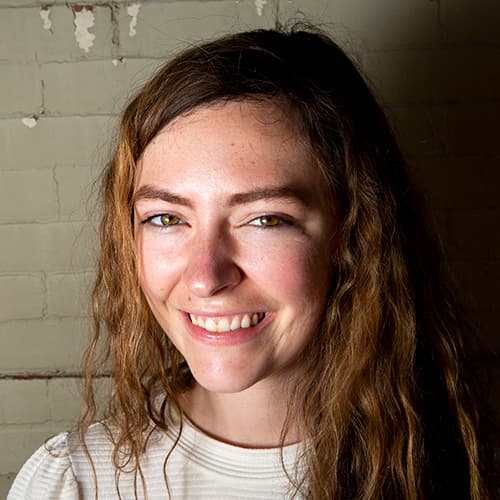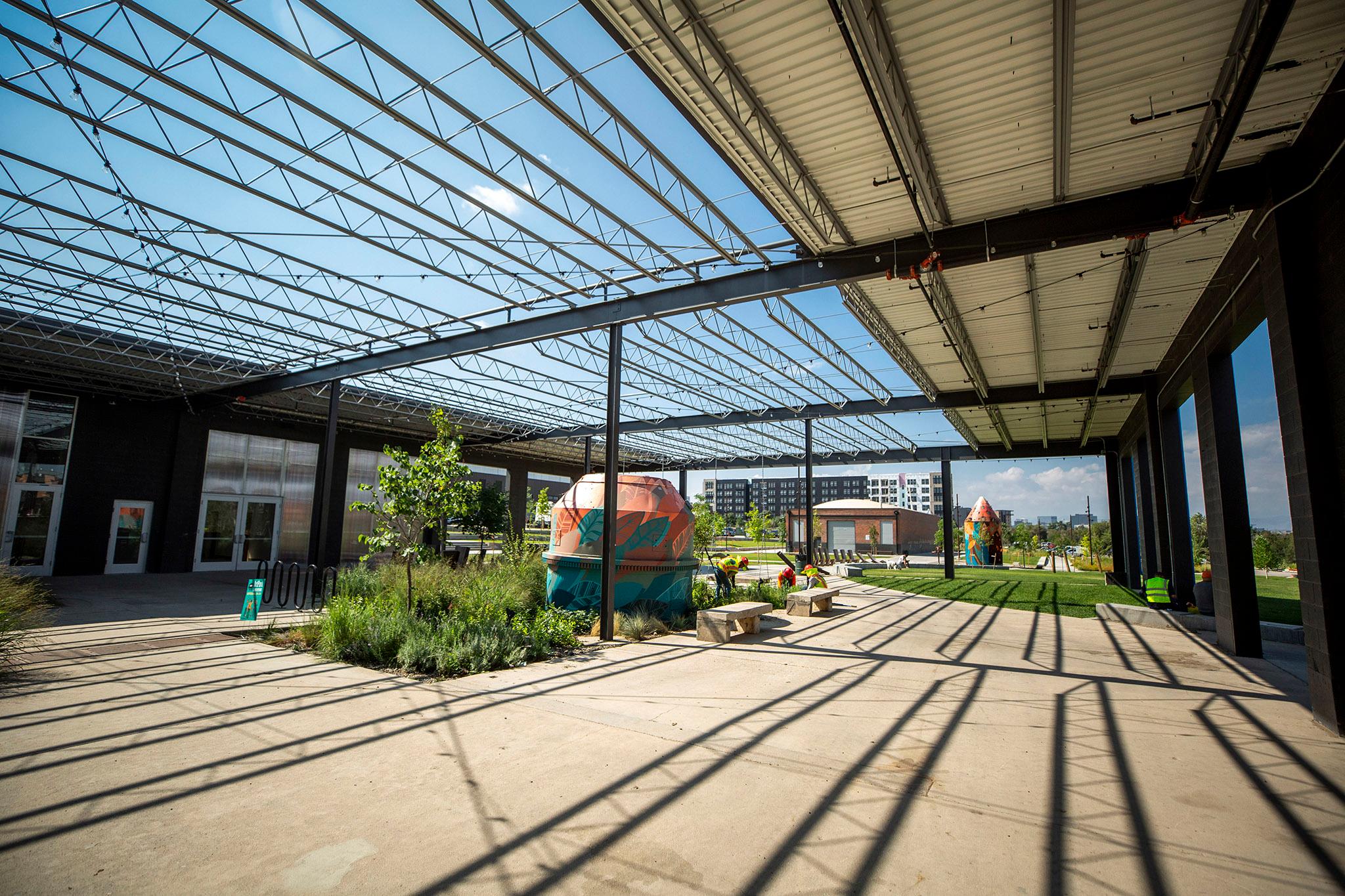This week, a former police building at 35th and Arkins on the South Platte was bustling with activity. Landscapers, construction workers, designers and RiNo Art District staff bustled around the building, setting up planters, plotting out murals and preparing for the grand opening of the ArtPark Community Hub in September.
"I get chill bumps when I come in here," said Tracy Weil, RiNo Art District's Executive Director. "Because this is really a legacy project, I think, for the Art District. This can really secure, in perpetuity, that art will always be a part of this community. Because it is a catalyst."
Designed by Tres Birds architect Shawn Mather and principal Mike Moore, the Community Hub is an art, food and community center serving the Cole, Globeville, Elyria Swansea and Five Points neighborhoods. It's situated in a riverfront park operated by the City, and houses an art gallery, affordable artist studios operated by RedLine, a new DPL library branch, and CoCuA, a culinary incubator and café showcasing local food entrepreneurs .
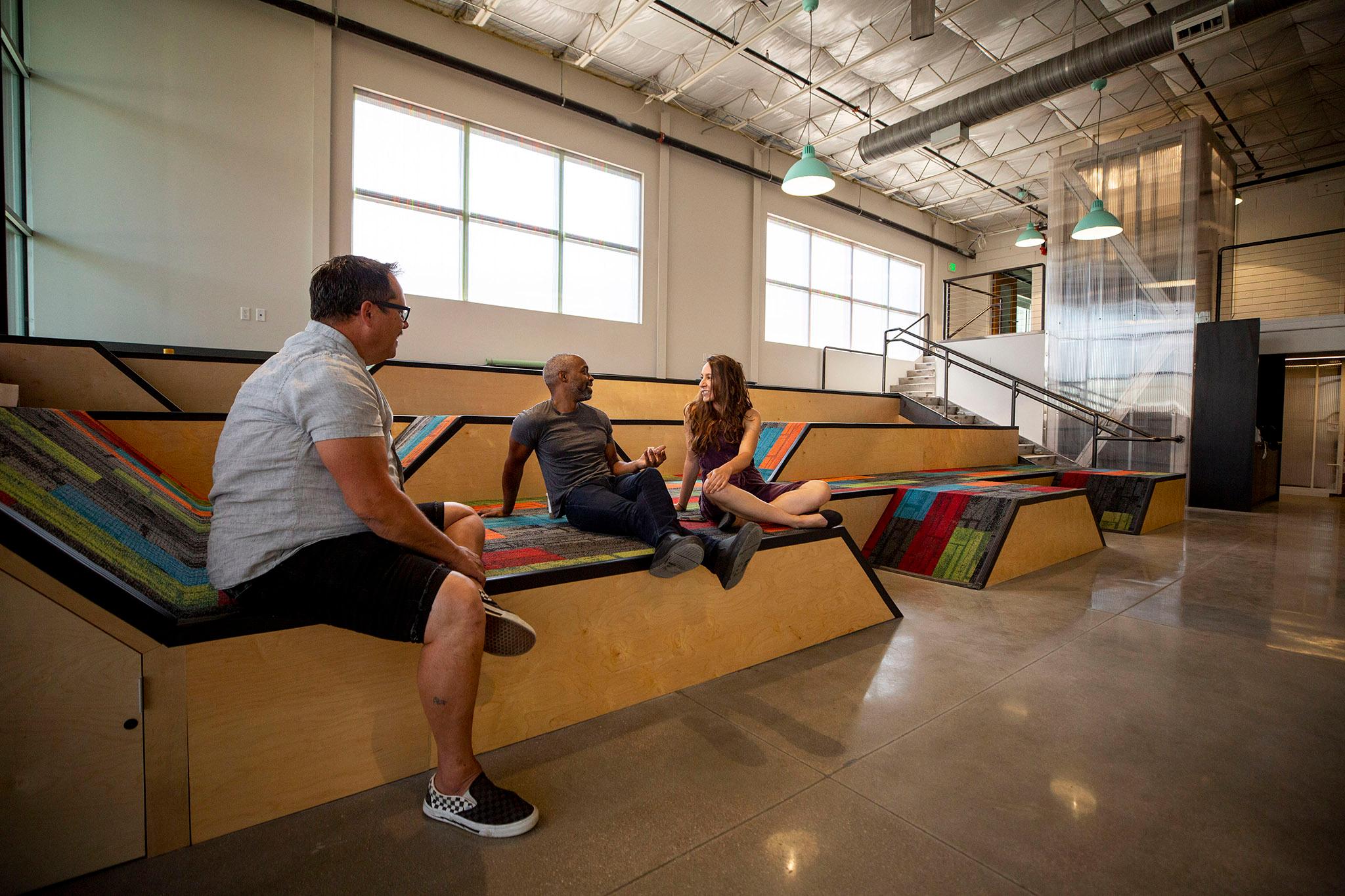
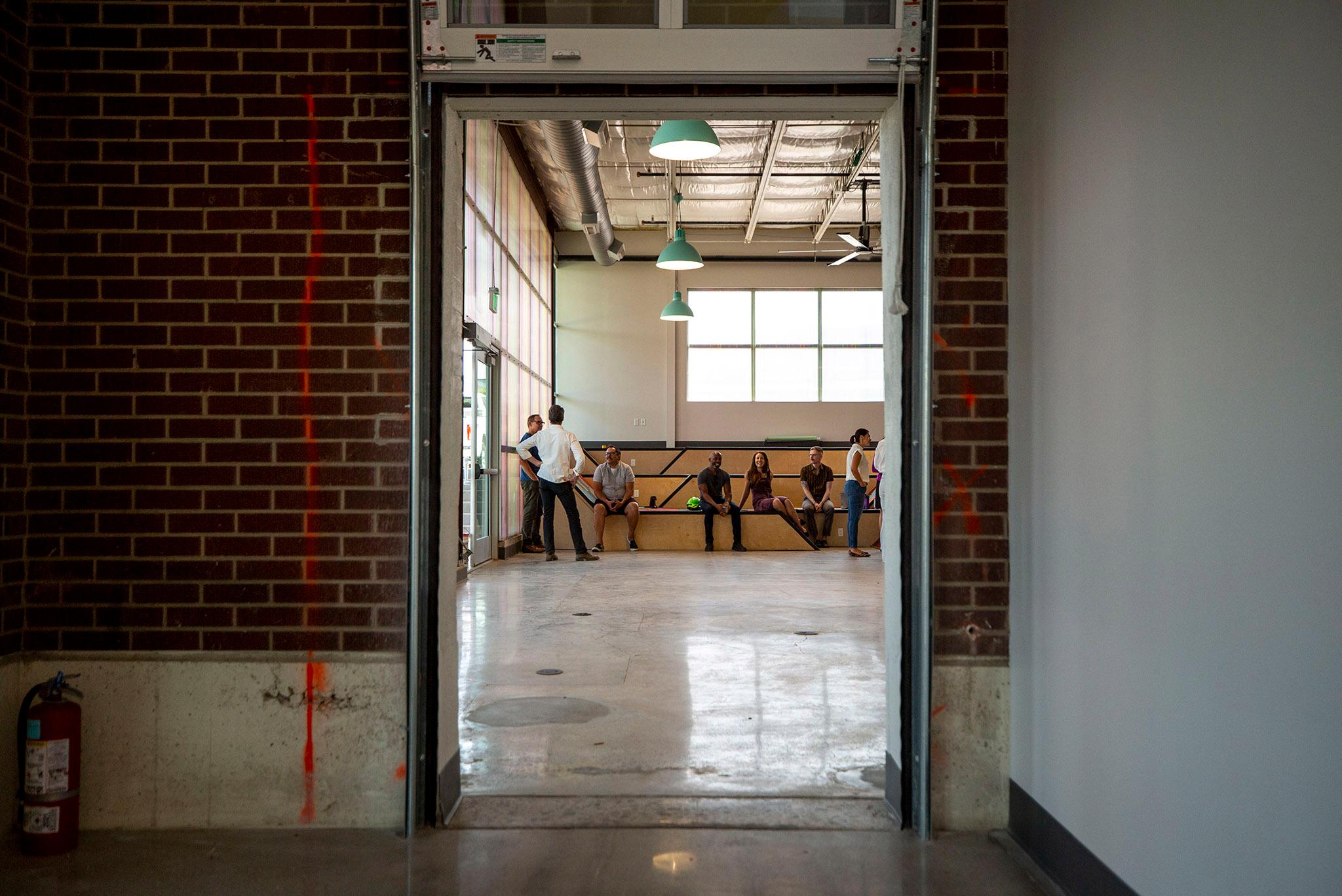
The Hub will officially open to the public next month, when on September 24-26 RiNo Art District will host a series of events, including an open house, a ticketed picnic with live music and entertainment, and a free family celebration with food trucks, an Ethiopian coffee ceremony, performances, face painting, yoga, art classes, bounce houses and more. RiNo is also offering a shuttle that goes through Globeville and Elyria-Swansea during that weekend.
The opening weekend is just the beginning of RiNo's efforts to create even more arts and culture programming in the park. Molly Pailet, RiNo's ArtPark director, says RiNo has been working to secure funding to do a series of programs built around the river, like art, meditations, writing, river walks, cleanups and environmental advocacy, which would culminate in a big public art river walk festival.
"In the past, RiNo has done a lot of programming mostly for artists. And this is sort of a new programming venture where we're programming for all ages for the community," Pailet said. "I'm excited to do programs that are connected to the river. Because this is River North, you know."
The park is owned and operated by the city, but the buildings that make up the ArtPark Community Hub are owned and operated by RiNo.
The community partners -- DPL, RedLine and CoCuA -- are all tenants.
"We're really excited. I think it's quite innovative. I don't really know of too many projects around the country that actually do this," Weil said.
Weil said that back in 2007, he learned that the city bought a bunch of vacant old industrial buildings along the river in hopes of building a park there. Weil said that the community came together to ask that the city not tear the buildings down.
"These old industrial buildings, that's what we are," Weil said. "We're about reuse, however we can do that. I think we can maintain that history that we have."
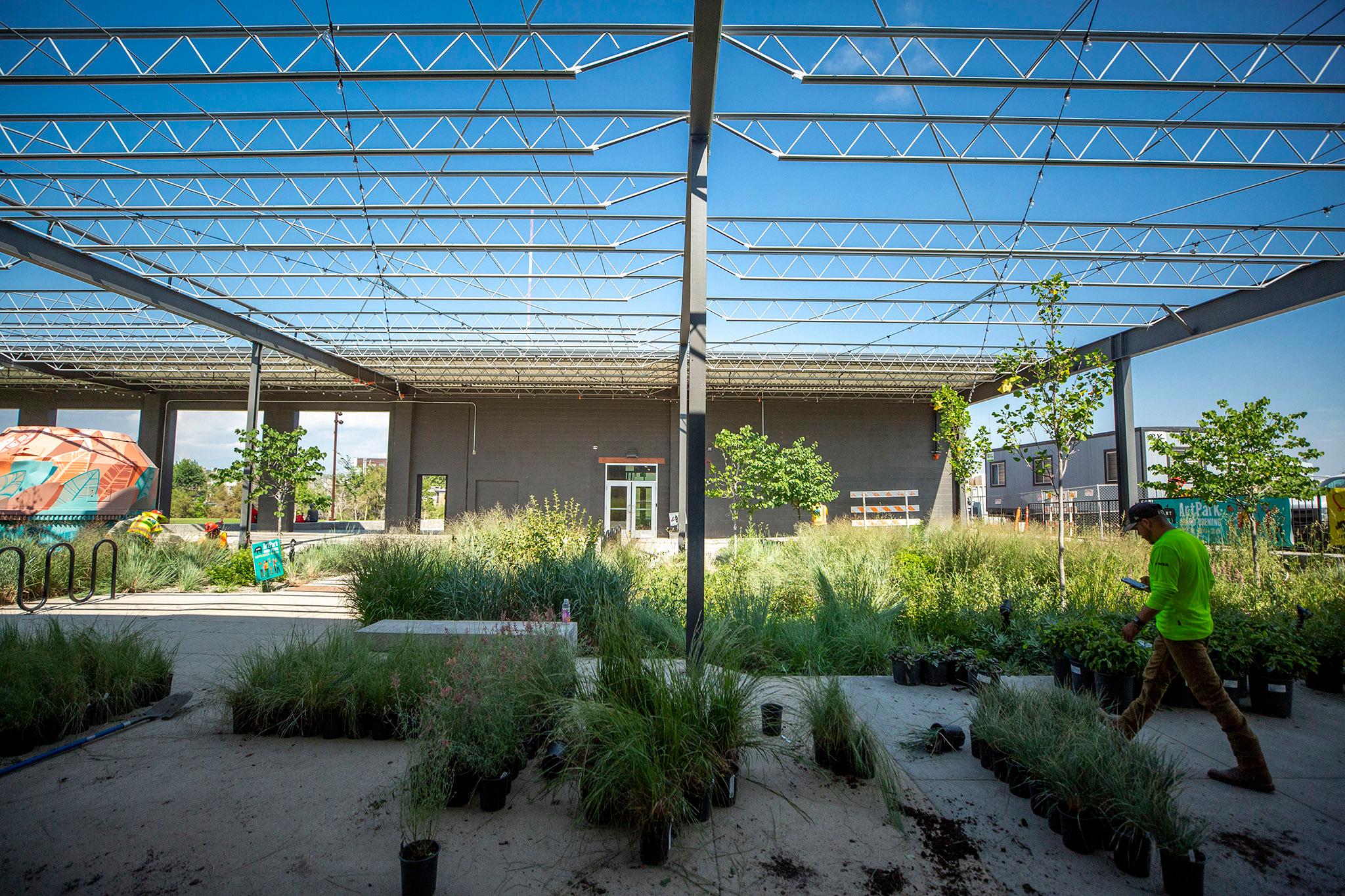
Weil said the city announced an RFP (Request for Proposal) for the park buildings, and the RiNo Art District applied to use them as community spaces. They were granted access to the buildings for $1 per year for a ten year commitment, plus the ability to extend.
The Community Hub is a repurposing of one of those buildings, which RiNo split into two separate spaces joined by a courtyard garden. Weil says they've helped fund about half of the $3.1 million project through RiNo's two tax districts- the Business Improvement District and the General Improvement District- and that Keep RiNo Wild, the group's Nonprofit 501(c)(3), is working to fundraise the rest.
RiNo also now operate a 1940's barrel-roofed building that Weil says used to be an Interstate Trucking Co. building. RiNo plans to convert it into a live performance space.
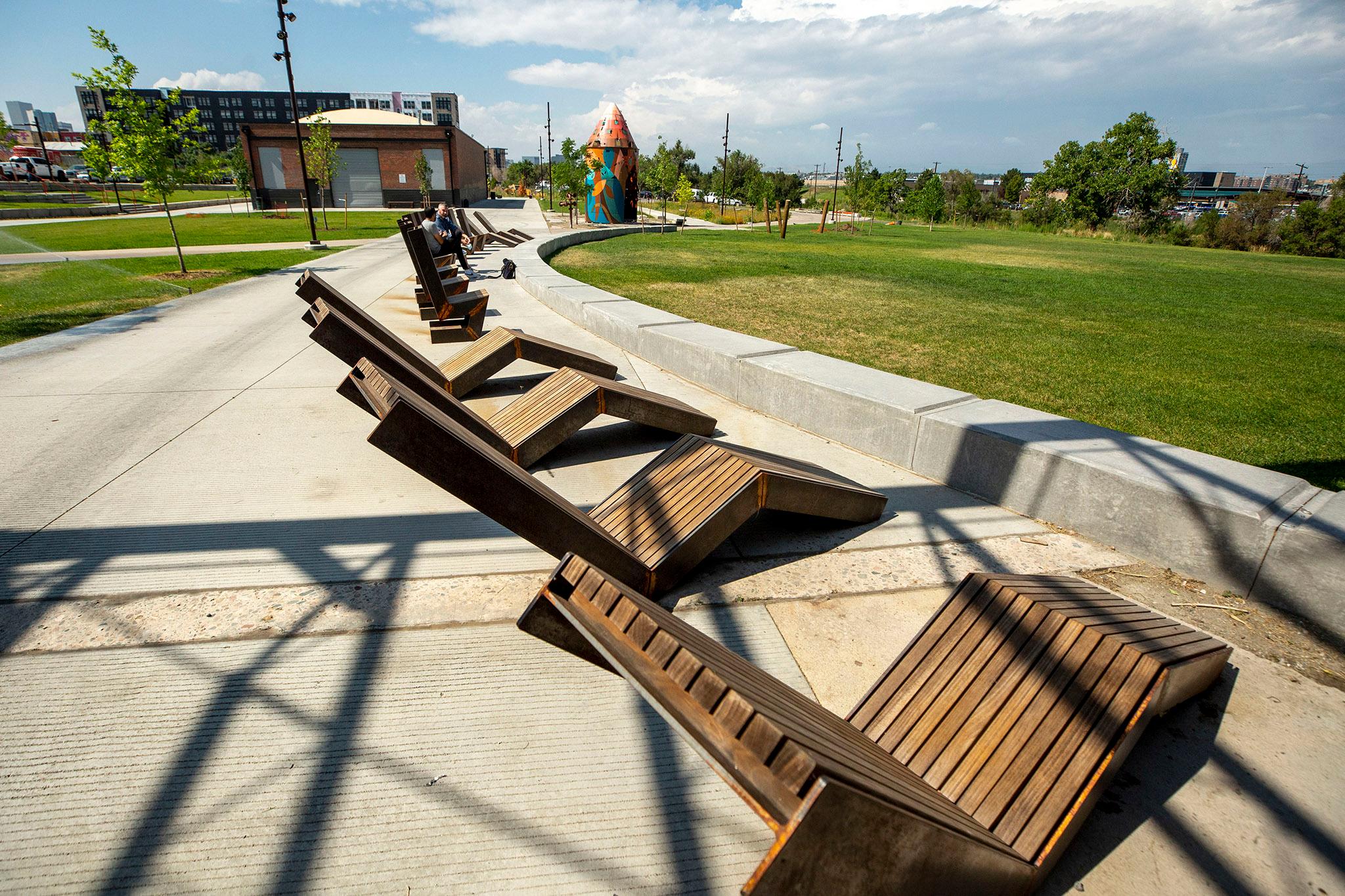
CoCuA stands for Community Culinary Accelerator.
It's an initiative by the nonprofit Focus Points Family Resource Center, which serves families in Globeville and Elyria-Swansea, and a sister program of Comal, a food incubator that offers culinary education and entrepreneurship for immigrant and refugee women so they may share their culinary traditions through new business ventures.
CoCuA takes Comal a step further by offering participants commissary spaces, as well as financial guidance, mentorship and access to a professional, fully stocked kitchen. The idea is to give food entrepreneurs the support and resources to develop and expand their businesses and take them to the next level.
"The idea and the intention was to incorporate and involve communities -- Cole, Five Points Elyria-Swansea and Globeville," said program manager Arden Lewis. "Basically, focusing on areas that were displaced or affected by the development of RiNo, and just trying to include them back into the progress of the neighborhood. "
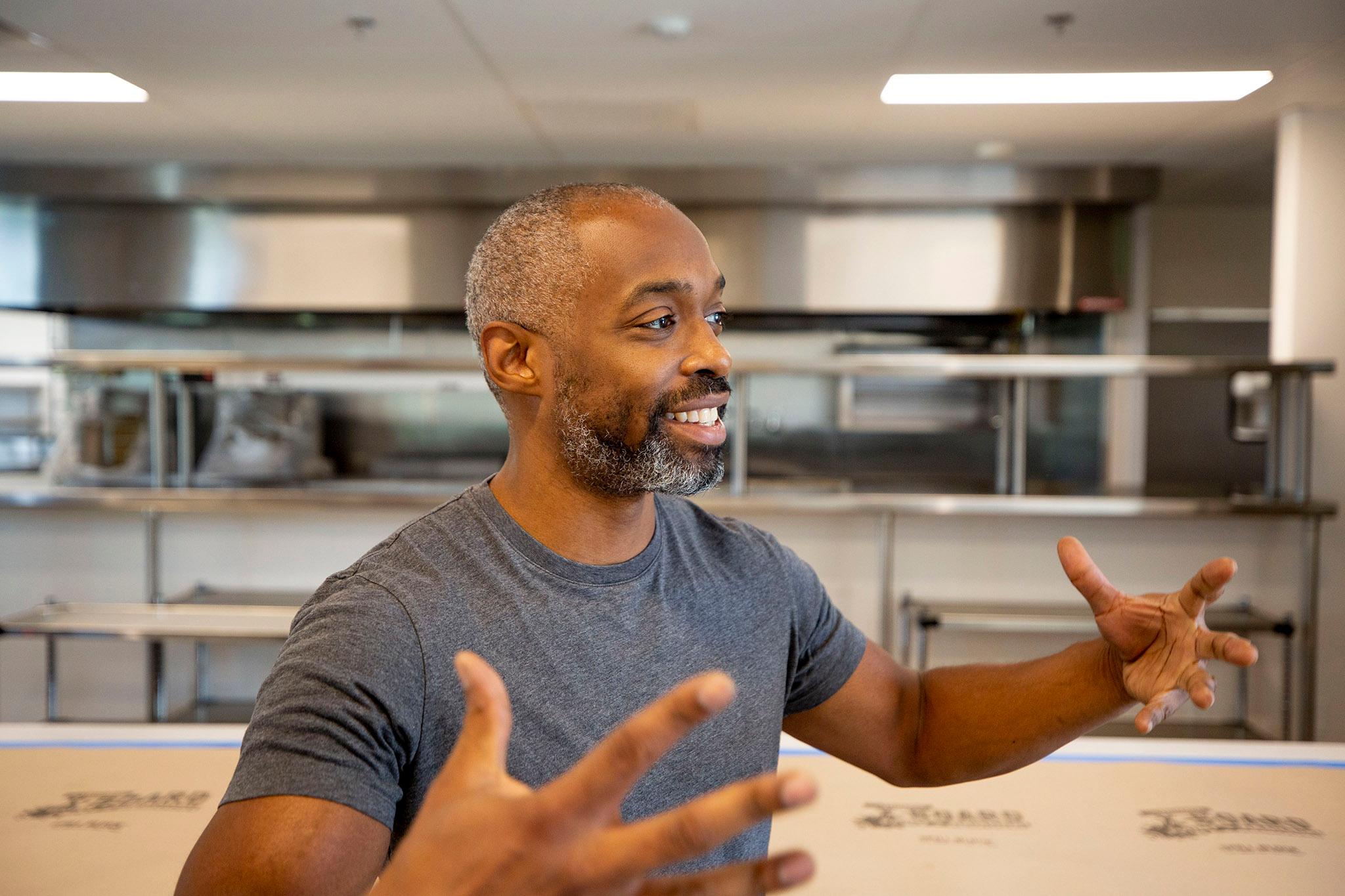
Unlike Comal, CoCuA focuses on people who are entrepreneurs rather than folks who want to be entrepreneurs. Residents will have started micro businesses grossing about $50k a year, and that are based in the 80205 or 80206 area codes. The hope is to help the businesses reach their goals and expand their revenue, which can be difficult without financial training or access to expensive equipment.
"Imagine someone who's making donuts in their apartment, and they can't produce more than their residential oven," Lewis said. "Scaling up is really the lesson that we really want to want to give them the opportunity to learn, without having to spend $250k in equipment for something that they may need or may not need,"
CoCuA's space in the community hub is an airy café that opens to an outdoor patio overlooking the park. The café will house an international bakery during the day, and offerings from three commissary businesses on rotation in the evenings. They'll also have a food-centric retail outlet, where they hope to partner with local artists to sell things like ceramics and aprons.
Each business will be offered a two-year residency. Lewis says that what the café sells will be based on the residents' goals. Some businesses will be public facing, while some will be focused on catering or creating a product for wholesale. And rather than having the commissary businesses all operating the space at once, CoCuA has structured the residencies into seasonal rotations. Each business comes up with a plan over several months, executes the plan in the space for several months, and then builds towards launching out of the program.
"We want it to be collaborative and not competitive," Lewis said. "So instead of having it a classic food hall -- like the menu has a little bit from everybody -- we really want the businesses to learn the lesson of running that business and see what that business looks like over a period of time. "
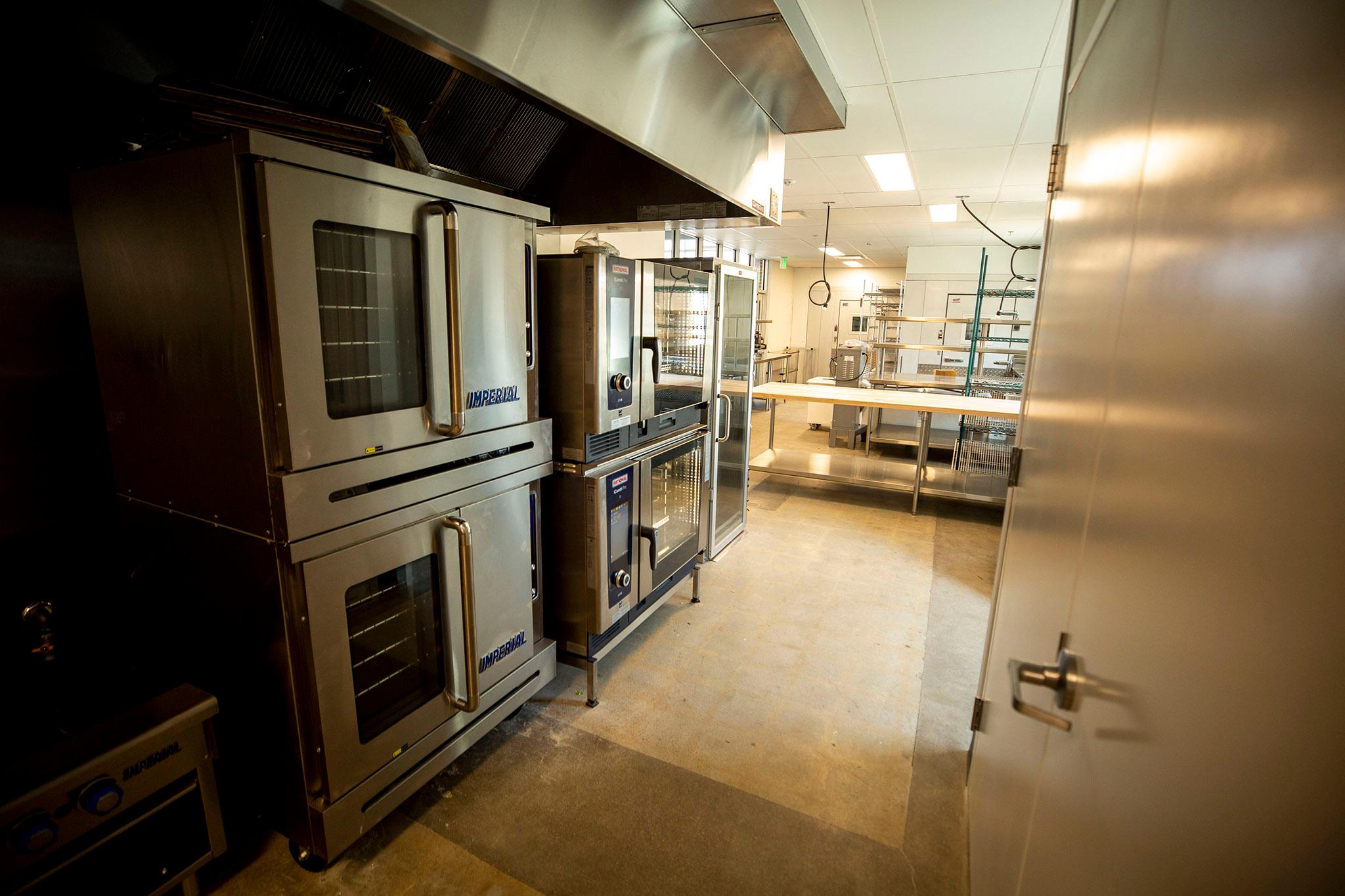
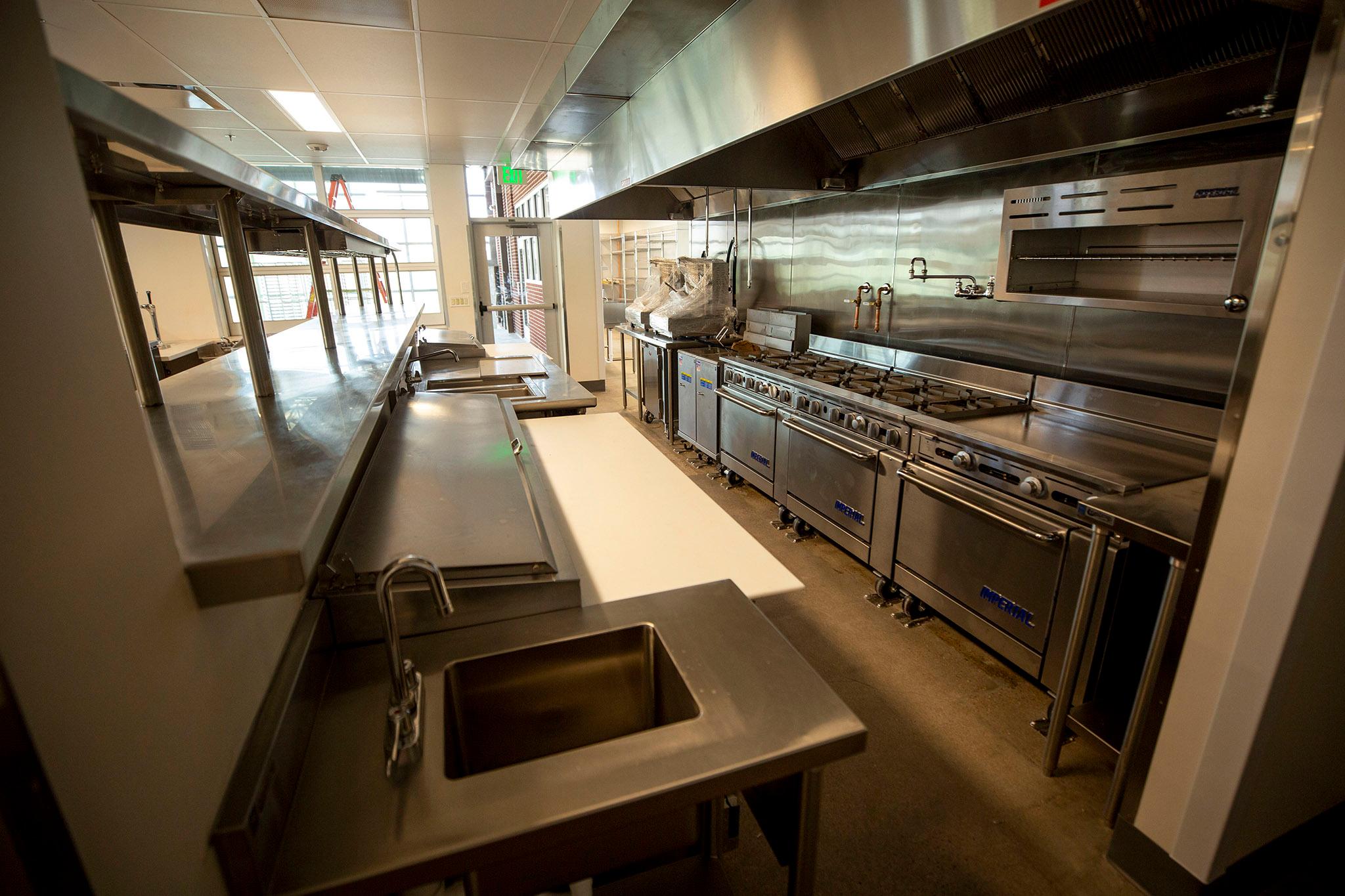
The program is designed to promote networking and community, to create connections between entrepreneurs and to eventually build an alumni network. Residents are encouraged to develop their own community-oriented programming, and other groups in the community are allowed to come in and activate the space as well.
Each business gets a wholesale account and access to the space's state-of-the-art kitchen. CoCuA is also responsible for hiring support like dishwashers and prep staff, so the businesses don't have to worry about staffing up. CoCuA meets with the residents regularly to facilitate collaboration, to go over the businesses' financials and taxes. CoCuA also will host different business leaders to teach seminars on things like building an inventory and food costing.
The program hopes to eliminate many of the financial hurdles of expanding a business, and to help residents overcome others. They do charge rent for the use of the space, but Lewis says it's proportional to what businesses make, rather than being a fixed amount. He says it's subsidized, and designed primarily to get residents in the habit of paying rent and knowing what that feels like.
"The rent is really more in name only," Lewis said. "The formality of paying rent is really what we're more concerned about. We're concerned about the paying of the rent, we're concerned about building a credit history for wholesale accounts."
The new DPL branch offers 7,000 square feet of space, Wi-Fi access, Chromebook checkouts and a unique collection. Visitors can check out community meeting rooms and soundproof audio recording rooms for free. The branch will also host the Denver Zine Library.
Olivia Gallegos, DPL's communications manager, says that in 2017, Denver Public Library identified a need for a library that would serve Globeville. When the RiNo ArtPark partnership came together, they were able to get a space at a rate they could afford.
"We're really, really grateful that RiNo has come together and done some fundraising for it, because I don't think we'd be able to be here, if it wasn't for this," Gallegos said.
Mónica Lozano is the ArtPark branch's senior librarian. She says she's excited to work in partnership with the other organizations in the building, and the opportunities that might create building more of a connection to the community.
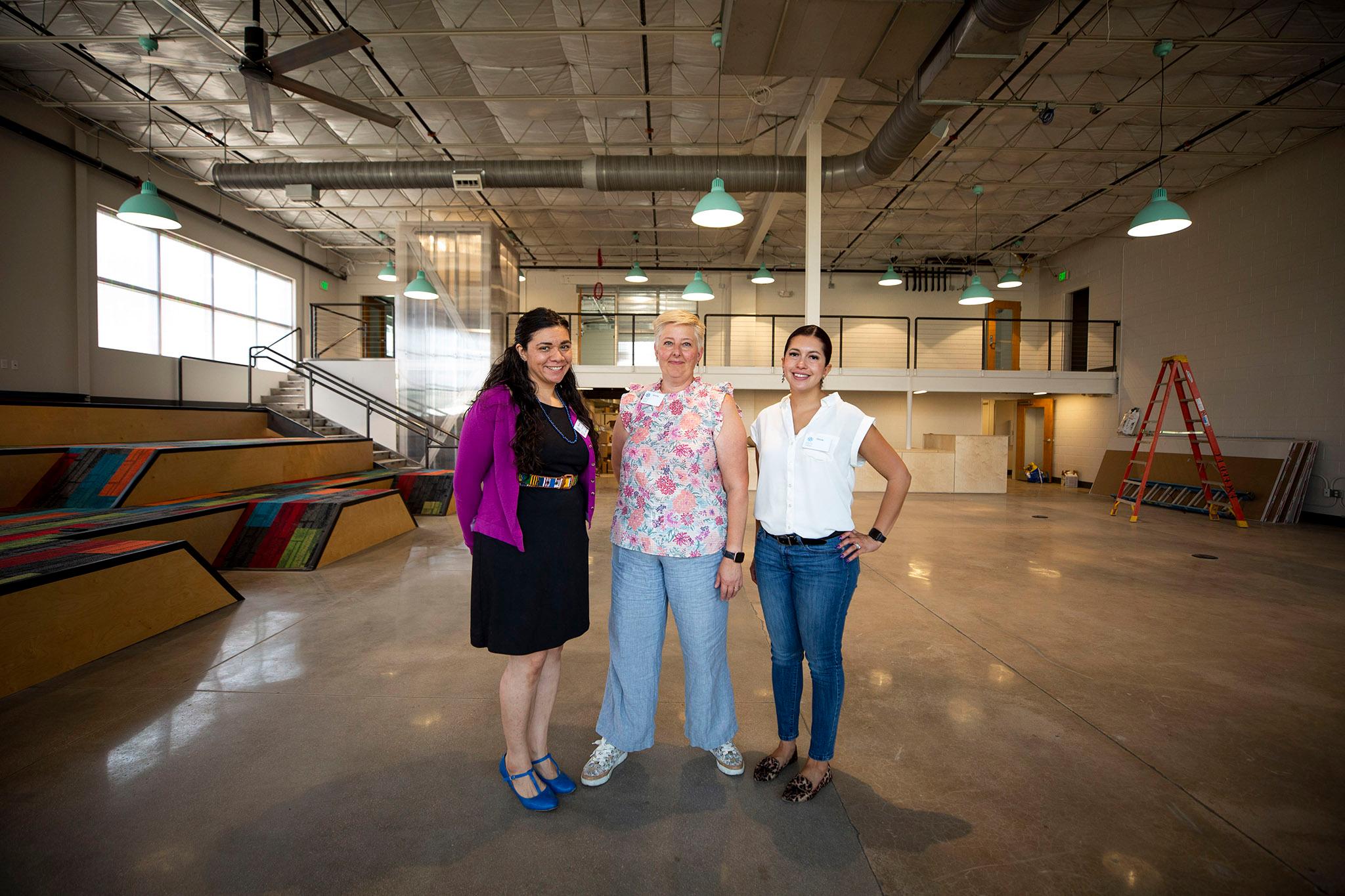
"I'm excited to really break that idea that art isn't accessible, knowing we can have like the library space right there, and you can just walk over and see a gallery," Lozano said. "Also, just really thinking about historically, who's been in this area, and remembering who was here, who is currently here, and keeping the history of the area. Hopefully, at some point, we'll do some sort of programming around that, doing like oral history-type things."
The new branch will open when the park does next month, but won't have a name until months later. DPL is currently inviting community members to submit name ideas online or in person at the Valdez-Perry, Blair-Caldwell, Ford-Warren and Pauline Robinson Branch libraries. The submission deadline is Monday, September 6.
The name vetting committee is made up of a group of community members selected by Councilwoman Candi CdeBaca. The committee will pick the top names, which will then be put to a public vote in mid-October. The Committee will then present the winning name to the Library Commission for approval.
"We're community spaces. And we want to make sure that what we're offering at all of our locations are really reflective of the community needs and desires," Gallegos said. "So naming kind of goes along with that. We want it to be something that the community can take pride in and feel ownership over."
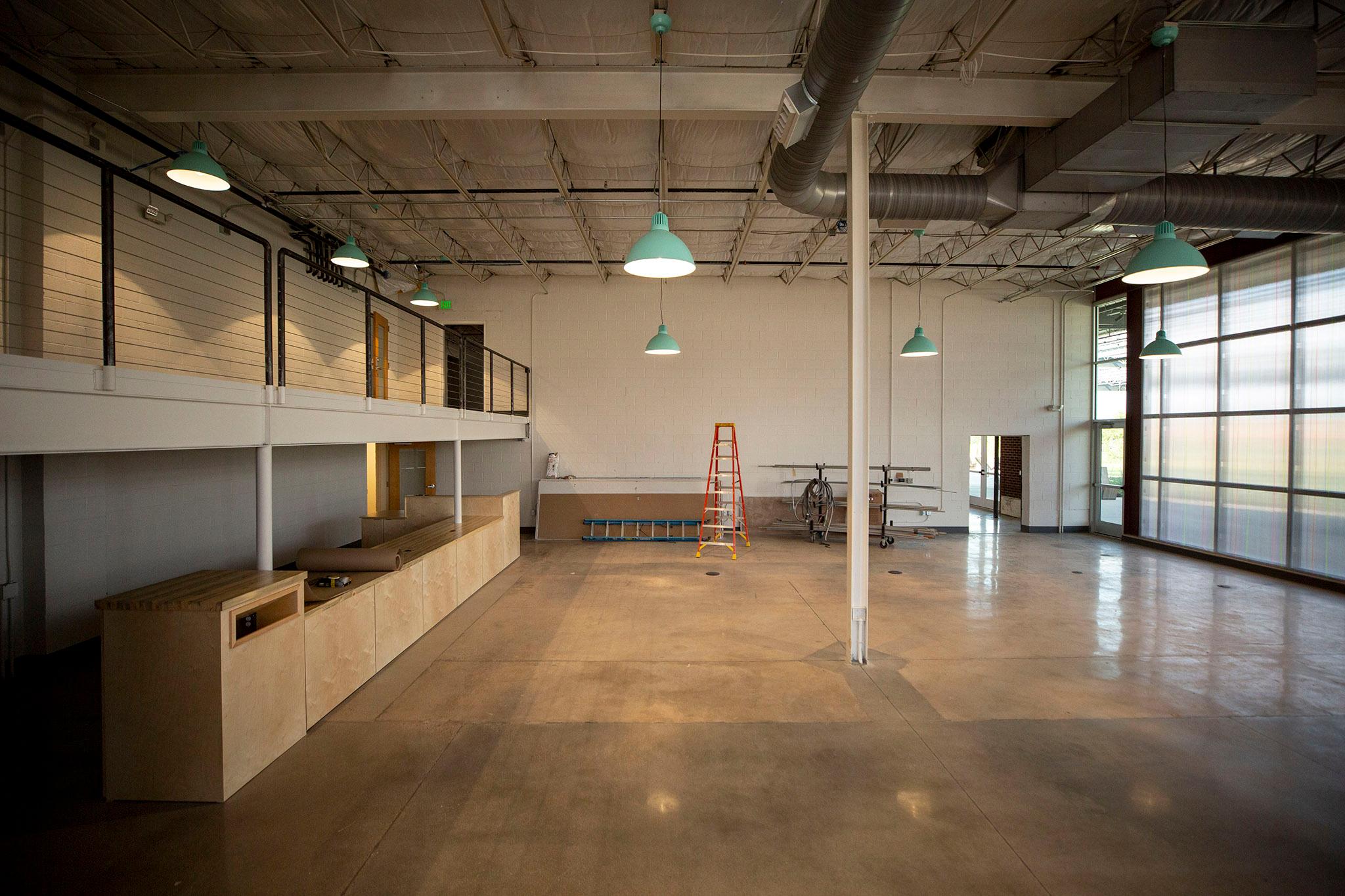
ArtPark has commissioned murals and outdoor art by local artists. Inside, there will also be a gallery, plus eight artist studio spaces operated by RedLine Contemporary Art Center, a group dedicated to supporting rising local artists.
"Affordable studio space is an enormous challenge in this community," said Louise Martorano, RedLine's Executive Director. "And this was an opportunity to create another place that had better access to locally based artists."
RedLine's main gallery on 24th and Arapahoe St. offers fully-funded residencies to local artists. The ArtPark "satellite" space offers affordable- but not fully funded- studio space and collaboration opportunities for slightly more established artists. Martorano says rent will be about $200-225 a month, and that accepted artists will be offered a one year lease with the option to renew.
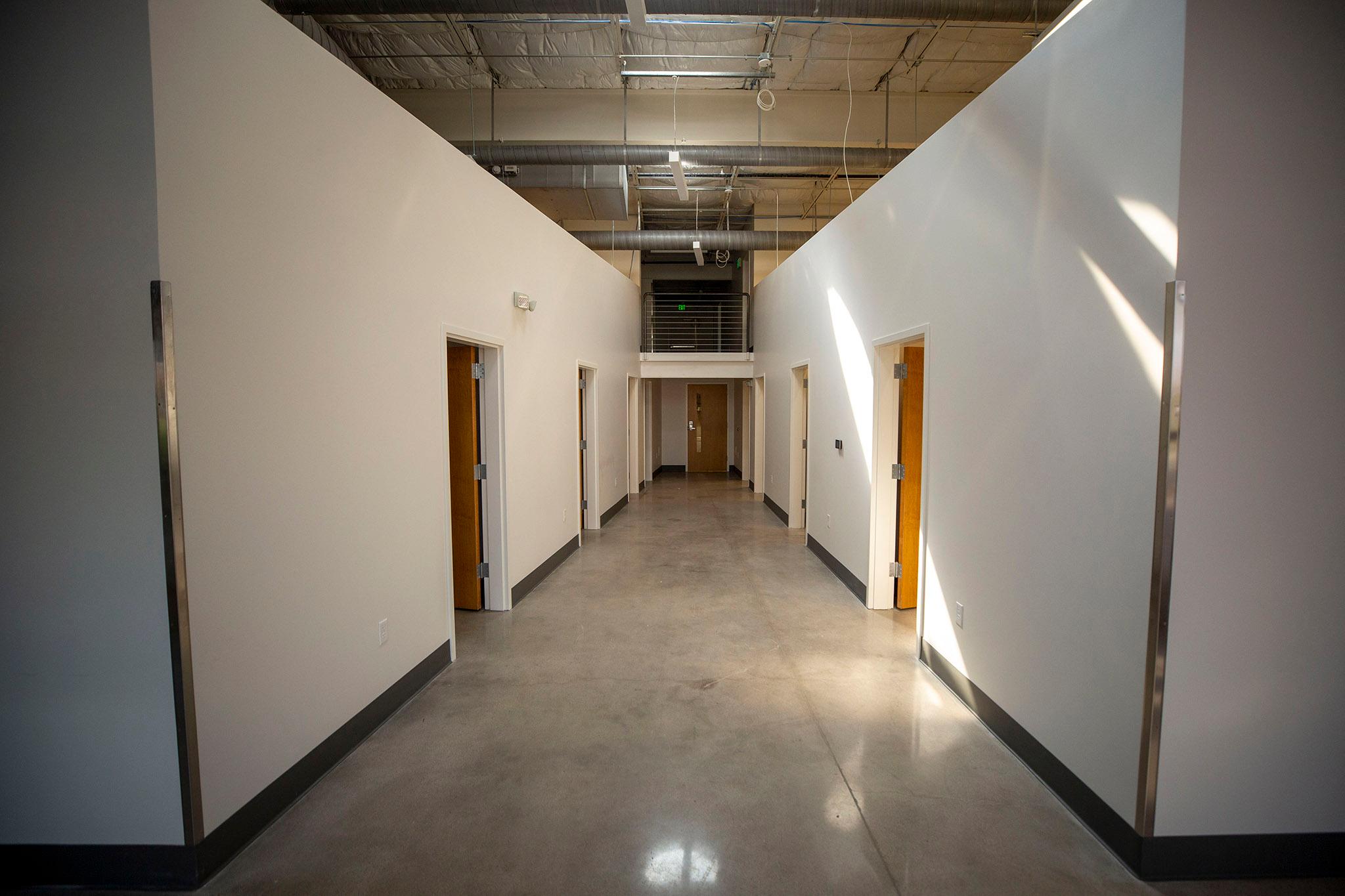
"I always say that it's long enough to fall in love," Martorano said, "You want artists to fall in love so that they then continue on and make more collective studio spaces together. And that's certainly what we've seen at RedLine."
She said they've had 33 applicants for the eight studio spaces, and that they're considering artists who are interested in being part of a collaborative community space.
"We really look for artists who are excited to collaborate, excited to learn, excited to see how they can connect better," she said. "They have energy beyond their work to bring to communities, and also they have space to receive what communities bring to them."
She said there are no limitations on the type of artist who could apply for the studio spaces. She said they've had applications from slam poets, writers, musicians, painters, woodworkers, jewelers and sculptors.
"I, a long time ago, gave up on the idea that it had to be anything specific, because artists are now more and more working in this interdisciplinary and cross-disciplinary way," Martorano said. "There's no limitations, which makes building owners nervous. But they'll be fine!"
The gallery where the studio spaces will operate out of will be operated by Alto Gallery. Martorano says the gallery will launch with a solo show by Anthony Garcia of Birdseed Collective.
"We're excited for not only this partnership, but also the partnerships that happens with our neighbors- the library and CoCuA," Martorano said. "What sold us on this partnership was, not only did it fit a strategic vision for securing affordable studio space, in community and with community, but also this opportunity to work with people whose values align with ours."
She says she's excited about making opportunities more accessible to artists, but also making art more accessible to the community, who might experience the art while visiting the library, or grabbing food at the café. She said elitism can wreak havoc on the art world, and that RedLine has always tried to be approachable.
"We hope that young, old, in-between community members walk in and see themselves here," she said. "We're excited for this to be really deeply connected with everyone. "
The ArtPark Community Hub opens to the public on September 24.
